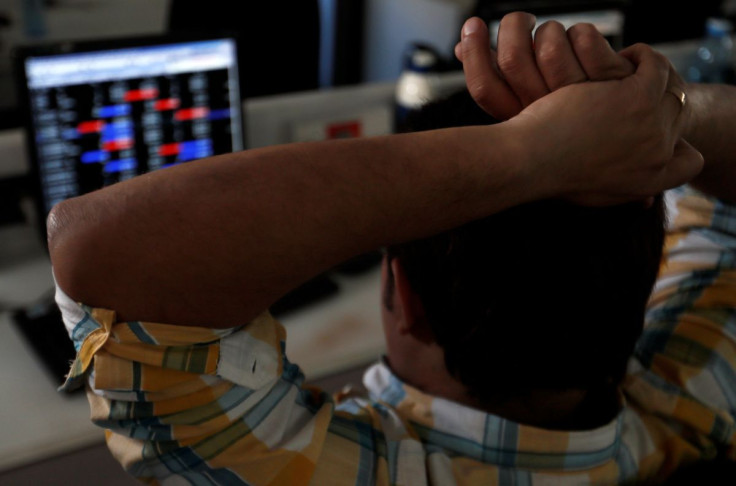Oil Surges, Stocks Rebound As Ukraine Fighting Continues

U.S. and European stocks rebounded on Wednesday and crude prices surged as fighting raged in Ukraine and OPEC+ oil producers kept plans to raise output in April, posing a challenge for central banks hoping to curb rising inflation.
Gold prices slipped on the uptick in risk appetite and U.S. Treasury yields rose from eight-week lows as investors weighed how aggressively the Federal Reserve might raise interest rates in coming months with the outlook on growth a major concern.
The Fed will move forward with plans to raise rates this month to try to tame high inflation, but the war in Ukraine has made the outlook "highly uncertain" for U.S. policymakers as they plan ahead, Fed Chair Jerome Powell said.
Powell gave no hint about how much or how quickly the Fed will tighten policy, but traders now see a 5% probability of a 50-basis-point rate hike at its meeting in two weeks and a 95% probability of 25-basis-point hike.
Markets are struggling with what happens to growth in Europe and the U.S. because of the Ukraine conflict, said Marvin Loh, global macro strategist at State Street.
"This increase in energy prices makes it a challenge for the Fed because on the one end, it increases inflation," Loh said.
"But, generally speaking, when you get these surges in energy prices there's a deflationary component associated with that, because it saps growth elsewhere," he said.
After nearly a week at war, Russia has yet to achieve its aim of overthrowing Ukraine's government. Ukrainians said a battle ensued in the port of Kherson, the first sizeable city Moscow claimed to have seized.
All 11 major S&P sectors advanced in early U.S. trading, led by energy, and the major European indices were a sea of green too, with commodity-linked stocks making big gains.
The pan-European STOXX 600 index rose 1.31% and MSCI's gauge of stocks across the globe gained 0.73%.
On Wall Street, the Dow Jones Industrial Average rose 1.52%,, the S&P 500 gained 1.42%, and the Nasdaq Composite added 0.94%.
Euro zone bond yields rose after dramatic declines a day earlier, with Germany's real yield hitting a record low as traders assessed the economic fallout of the Ukrainian invasion.
Repricing saw Germany's 10-year yield, the benchmark for the euro zone, recorded its biggest daily fall since 2011 on Tuesday. Markets unwound part of those moves, Germany's 10-year yield up 8.1 basis points to 0.009%. The yield on 10-year Treasury notes up 13 basis points to 1.841%.rose 2.82% to
Euro zone inflation soared to another record high last month, intensifying a policy dilemma for the European Central Bank, which needs to convey a sense of calm amid war-related market turmoil and also respond to mounting price pressures.
Oil surged above $110 a barrel as supply disruptions mounted after the sanctions on Russian banks, but prices later pared some gains.
U.S. crude rose 2.99% to $106.50 a barrel and Brent was at $108.39, up 3.26% on the day.
Aluminium prices bolted to a fresh record peak as investors fretted that logistics difficulties would block metals supplies due to tough sanctions on major producer Russia.
Three-month aluminium on the London Metal Exchange surged to a record of $3,580 a tonne.
The Russian ruble weakened 0.49% at 110.10 per dollar.
Foreign investors are effectively stuck with their holdings of ruble-denominated bonds after the Russian central bank put a temporary halt on coupon payments and a major overseas' settlement system stopped accepting Russian assets.
JP Morgan analysts said in a note the sanctions on Russia have "significantly increased the likelihood of a Russia government hard currency bond default."
The dollar index rose 0.331%, with the euro down 0.34% to $1.1088.
The Japanese yen weakened 0.64% at 115.64 per dollar.
© Copyright Thomson Reuters 2024. All rights reserved.







